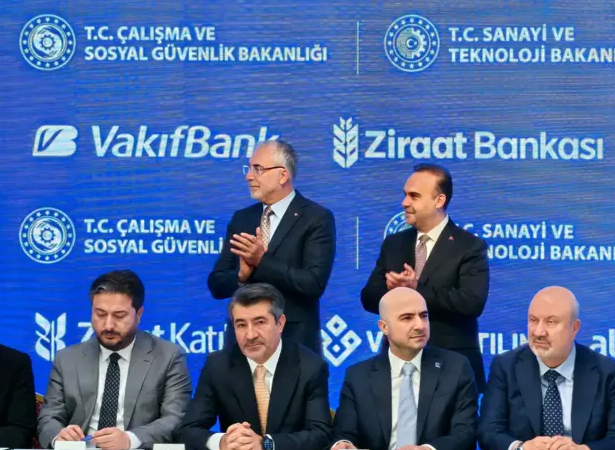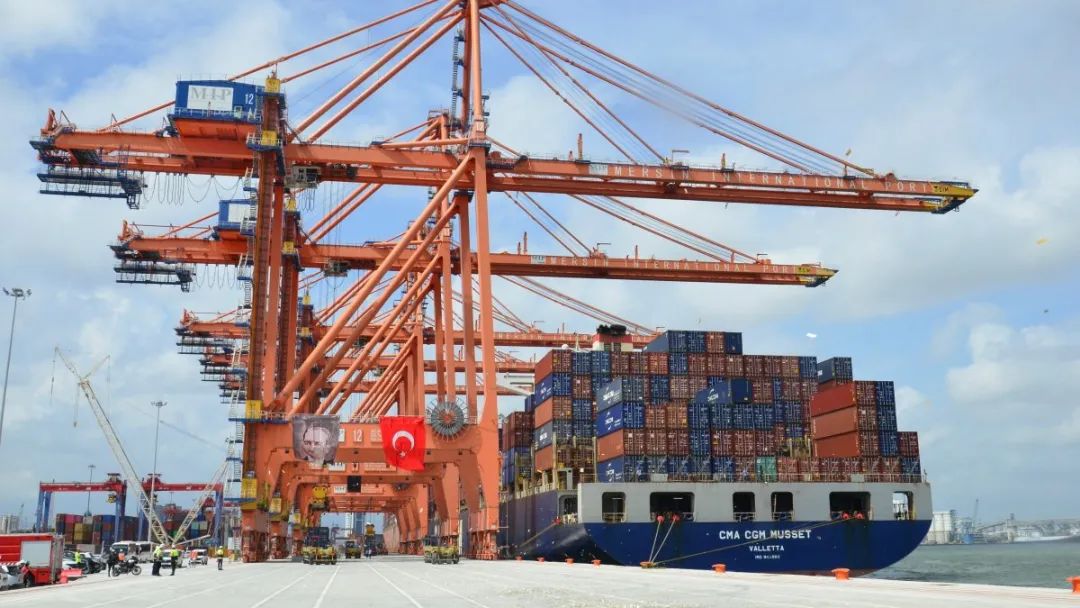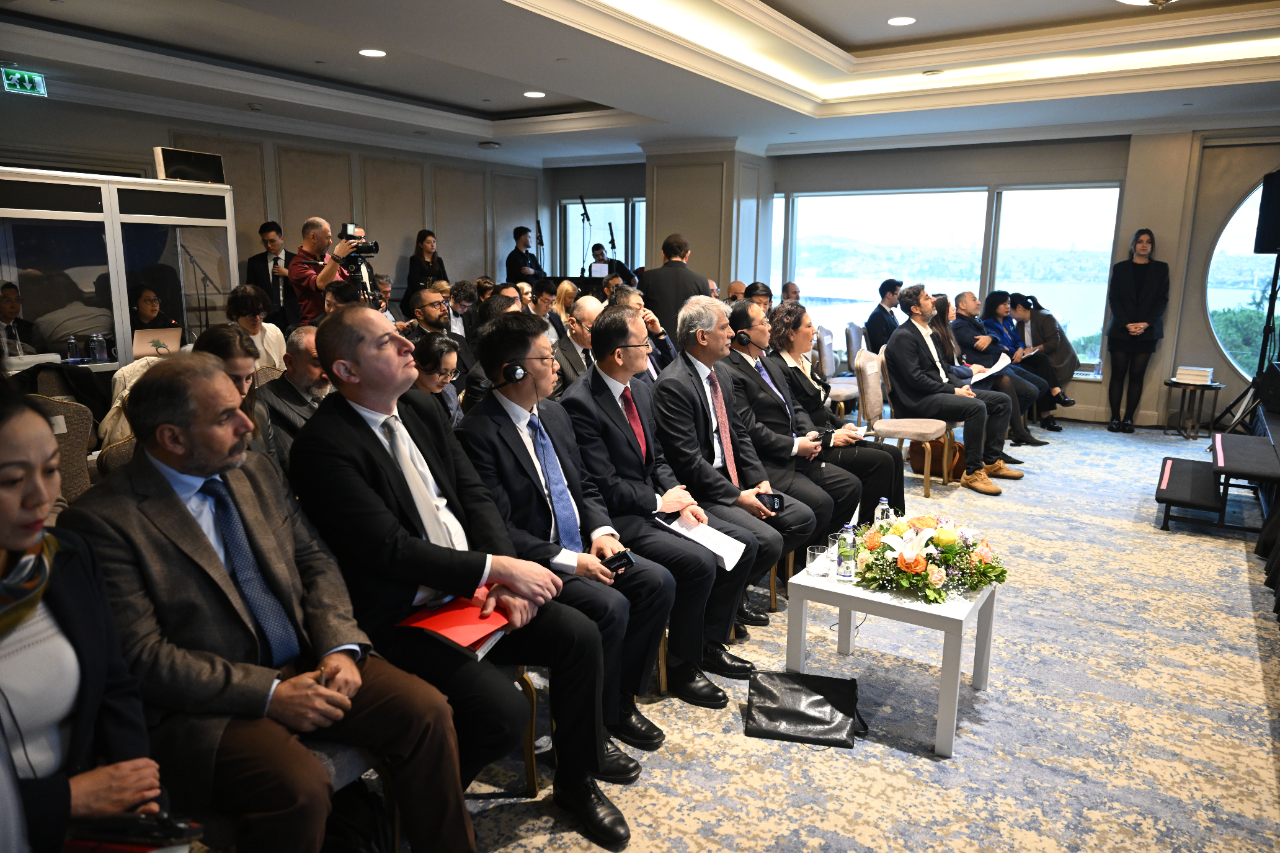Policies and regulations on attracting foreign investment in Türkiye
The government of Türkiye welcomes foreign investment. As one of the important driving forces for Türkiye's economic growth and innovation prosperity, foreign investment has played an important role in creating employment for Türkiye, promoting innovation, introducing new technologies, and promoting full competition in the industry.

1. Supervisory department
The Ministry of Trade is the competent department of trade and investment in Türkiye, whose functions include formulating, implementing and coordinating foreign trade policies, taking measures to attract foreign direct investment, protecting domestic industries, carrying out trade remedy investigations in light of the actual situation, collecting and sorting out the opinions and suggestions of other domestic departments and institutions on trade issues, and submitting them to the legislative department for consideration.
2 Market Access
Türkiye is highly open to foreign investment. According to the Foreign Investment Law, all industries open to domestic investors in Türkiye are equally open to foreign investment, and foreign investors and local enterprises enjoy the same treatment.
Restricted industries
According to Türkiye's commitment to join the World Trade Organization and the requirements of its national laws, foreign investment in some sectors of Türkiye is subject to certain restrictions, and some sectors need to be approved by the government.
3. Corporate taxation
Türkiye implements a tax system that combines the local tax law with the personal tax law. Foreign investors pay the same tax as local companies and natural persons in Türkiye. The tax system of Türkiye is mainly divided into 14 taxes, including income tax, consumption tax and property tax. There are two types of direct taxes, including corporate income tax and personal income tax. There are 12 types of indirect taxes, including value-added tax, stamp duty, transportation tax, financial and insurance transaction tax, gambling tax, inheritance and gift tax, real estate tax, property tax, communication tax, education contribution tax, customs duty, and special consumption tax. In addition to the above traditional taxes, Türkiye introduced a digital service tax in 2020.
corporate income tax
Enterprise income tax is an income tax levied on the production and operation income of enterprises. The target of expropriation is domestic companies, including resident and non resident enterprises. Enterprises with headquarters or effective operation and management institutions in Türkiye are regarded as resident enterprises, otherwise they are regarded as non resident enterprises. A resident enterprise has unlimited tax liability and is required to pay enterprise income tax on all its income in Türkiye and abroad; Non resident enterprises only need to pay corporate income tax on their income in Türkiye. Since 2018, the corporate income tax rate has been increased from 20% to 22%.
individual income tax
Türkiye's individual income tax is levied on Türkiye residents. Any resident who has resided in Türkiye for more than 6 months (except foreigners who have stayed in Türkiye for specific work, business reasons or special purposes specified in the Türkiye Law), as well as residents who live abroad but work for companies or government agencies headquartered in Türkiye, are considered as Türkiye residents, and are required to pay individual income tax on their global income. Salary, real estate income (rental income), movable property income (capital investment income), commercial profits, etc. are all within the taxable scope. The tax rate ranges from 15% to 35%.
value added tax
Value added tax is a type of expenditure tax, with a general tax rate of 18%. Some goods or services exported are subject to 0%, 1%, and 8% tax rates. Goods and services imported into the country, as well as goods and services delivered for other activities, are subject to value-added tax.
stamp duty
Stamp duty is widely applicable to various types of documents, such as contracts, bills payable, capital contributions, letters of credit, guarantees, financial statements, and payslips. It is levied as a percentage of the value of the documents, with tax rates ranging from 0.189% to 0.948%.
Financial and insurance transaction tax
Exchanges of banks and insurance companies in Türkiye are exempt from VAT, but must pay bank and insurance transaction taxes. The taxable object of this tax is the income earned by banks and insurance companies in transactions, with a general tax rate of 5%, excluding loan interest income. The income tax rate for interest on domestic and foreign currency loans within one year is 3%, the tax rate for 1-2 years is 1%, the tax rate for loans within 3 years is 0.5%, and there is no need to pay for loans exceeding 3 years. The income tax rate of one-year loan interest in local currency of Türkiye lira is 1%, and it is not required to pay more than one year. ①
property tax
Property tax mainly includes three types, namely real estate tax, vehicle tax, and inheritance and gift tax. All buildings, apartments and land in Türkiye are subject to real estate tax, with the tax rate ranging from 0.1% to 0.6%. Vehicle tax is levied annually, and the amount varies depending on the age and engine capacity of the vehicle. The inheritance and gift tax rates range from 1% to 30%.
Special Consumption Tax
Special consumption tax is one of the expenditure taxes, which is implemented for four types of goods and is only paid once during consumption. The first category includes petroleum products, natural gas, lubricants, solvents, and solvent derivatives, with varying tax rates; The second category includes cars and other vehicles, motorcycles, airplanes, helicopters, and yachts, with tax rates ranging from 1% to 84%; The third category is tobacco and tobacco products, alcoholic beverages, with a tax rate ranging from 25% to 275.6%; The fourth category is luxury goods, with a tax rate ranging from 6.7% to 20%.
Digital Service Tax
From March 1, 2020, Türkiye will start to levy digital service tax on digital service providers on a monthly basis. Digital services include online advertising services, user data transactions, etc. The tax rate is 7.5%, and the object of collection is the digital service providers in Türkiye with income of more than 20 million lira and global income of more than 750 million euros in 2019.
Digital service providers in Türkiye with income over 20 million lire but global income below the statutory limit can apply for exemption of digital service tax, but they must provide independent audit reports in at least five different countries (including Türkiye) in line with international audit standards before June 30 of the next year to prove their compliance. Taxpayers who fail to fulfill their obligations on time
In case of tax declaration obligation, Türkiye's tax bureau will issue a notice of call online. If the taxpayer still fails to declare or pay the digital service tax within 30 days after the call, Türkiye's Ministry of Finance has the right to notify the telecommunications technology department to intercept the services provided by the service provider.

4 Land Acquisition
Most of Türkiye's land is owned by the state. Part of it is directly managed by the national treasury, while the remaining land from the Ottoman Empire period is taken over by the Ottoman Foundation. The sale of land is managed by the General Administration of Land Management, and buyers need to submit a purchase application to the land registration office in the area where the land is located. Only after passing the review can the purchase be made. The purchase or transfer must be notarized by the land registration office or notary public, otherwise the sale will be considered invalid.
In January 2006, Türkiye amended the law on foreigners' purchase of land in Türkiye (Rule 5444). The law stipulates that foreigners should purchase land in designated areas, not in villages and military sensitive areas. The area of land purchased by foreigners shall not exceed 2.5 hectares. If authorized by the Cabinet of Türkiye, this limit can be increased to 30 hectares. The area of urban land purchased shall not exceed 10% of the total area of the city. This law is enforced under the condition of "bilateral reciprocity" and is revised annually by the General Administration of Land Management.
In May 2012, the Grand National Assembly of Türkiye passed a bill to cancel the bilateral reciprocal land purchase requirements, relax the restrictions on the number of land purchases, and allow foreign individuals and private enterprises to expand the area of land purchases to 30 hectares. The proposal requires that a construction plan must be provided before the purchase, and a project proposal must be submitted two years after the purchase. The bill stipulates that only foreign individuals and private enterprises are allowed to purchase land, and foreign public institutions, state-owned enterprises and countries are mutually beneficial: the other country must give Türkiye citizens the right to purchase land, and Türkiye will allow its citizens to purchase Turkish land. The number of institutions is not allowed to buy, and cities with foreigners can only buy 10% of the urban area at most.
5 Foreign Exchange Related Regulations
Türkiye does not take control measures on foreign exchange, and companies and individuals can freely purchase foreign exchange through banks, financial authorized institutions, post offices and precious metal brokers. Foreign enterprises can directly open foreign exchange accounts in Türkiye, and can freely repatriate profits, service fees and copyright fees, but when converting into registered capital, they need to convert foreign currencies into lira. Türkiye has no limit on the amount of overseas remittance. In recent years, the pressure on Türkiye's foreign exchange liabilities has increased. The government has encouraged the use of lira and strengthened foreign exchange supervision, limiting the application of foreign exchange loans to local enterprises and individuals without foreign exchange income. The transfer of foreign exchange involving 50000 US dollars (398000 lira) needs to be reported to the Ministry of Finance of Türkiye within 30 days of the transfer. The cash outflow of more than 3150 US dollars (25000 lira) may face the review of the Ministry of Economy of Türkiye.
6 Preferential Policies for Foreign Investment
Türkiye has taken many measures to encourage foreign investment, including general investment incentives, regional investment incentives, strategic investment incentives, project investment incentives, etc. In 2019, the Türkiye Investment Office issued the latest investment incentive measures to give foreign investors preferential treatment in terms of tax, social security, loans and land according to the investment area, amount, field and progressiveness technology. For details, please see the website of Türkiye Investment Office: https://www.invest.gov.tr .





